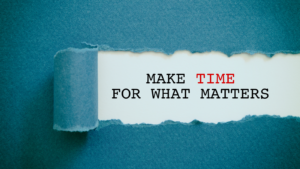 True to my Prairie roots, after a quick Canadian discussion on the weather, this next question “Where are you from?” almost always comes to mind when getting acquainted with someone. It’s a way of setting context, finding common ground (Let’s Go Blue Jays, Let’s Go!), and almost always sets the seed for the beginning of a business relationship.
True to my Prairie roots, after a quick Canadian discussion on the weather, this next question “Where are you from?” almost always comes to mind when getting acquainted with someone. It’s a way of setting context, finding common ground (Let’s Go Blue Jays, Let’s Go!), and almost always sets the seed for the beginning of a business relationship.
Almost always.
With the explosion of focus on Diversity, Equity, Inclusion and Belonging, I’ve tried to commit some of my personal learning time to better understand my role in contributing to a society that champions these values.
One such learning event included a terrific program called “Transcultural Communications Workshop” offered in partnership with South Alberta Institute of Technology (SAIT). In that program, I was shocked to learn that my go to question “Where are you from?” could in fact create alienation.
Truth was, as I reflected on it, being a Prairie transplant now situated in downtown Toronto, I recall being asked that question, and feeling myself flinch inside.
“Where am I from, or where do I live?” I would respond.
In Toronto, that question often meant “how bad is your daily commute”, but I heard it as “I think there is a piece of straw stuck in your teeth”.
I should not have been surprised therefore that this could be considered a micro-aggression, and yet I was. How many other casual idioms, turns of phrase, or pieces of common language were causing that same flinch in others?
A great resource that was shared through that program by one of the attendees is linked out here: https://www.themicropedia.org/.
Somehow, when this topic comes up, there’s this aura of “people shouldn’t be so sensitive”. And I get that. The grit of it is though, is you can only truly change yourself. Given that, isn’t knowing – and doing – what’s inclusive and respectful, just part of being a leader?
A very popular model of individual change management comes from the Prosci organization and is referred to as “ADKAR”. ADKAR stands for Awareness, Desire, Knowledge, Ability, Reinforcement.
In other words:
- Awareness: Do you know what needs to change?
- Desire: Do you want to change?
- Knowledge: Do you know how to change?
- Ability: Are you able to change?
- Reinforcement: And once you change, what is being done to ensure the old ways don’t creep back in?
Given now you might have a different sense of Awareness, then the next question will be “do you really want to change”?
I love this quote from Maya Angelou: “Do the best you can until you know better. Then when you know better, do better.” It encompasses my pursuit of continuous learning, and then as I learn, to make those changes I need to make in myself as a leader and to help others experience the benefit of that learning as well.
Being a leader in today’s world isn’t easy. But that’s also what makes it so rewarding, engaging, and challenging. If you’re interested in a sounding board to help you think through the challenges you face, don’t hesitate to reach out – an Osborne Interim Management coach might be just the thought partner you are looking for.
Yvonne Thevenot
Senior Advisor












